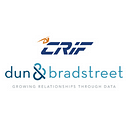Risk Assessment and Mitigation: The Role of Due Diligence Reports
In the world of business, risk assessment and mitigation are critical components of making informed decisions. When considering mergers and acquisitions, investments, or partnerships, conducting thorough due diligence is essential. A key tool in this process is the due diligence report, which provides valuable insights and analysis to assess potential risks and develop appropriate mitigation strategies.
In this article, we will explore the role of due diligence reports in risk assessment and mitigation, highlighting their importance in safeguarding businesses and enhancing decision-making processes.
Understanding Due Diligence Reports
Due diligence is a comprehensive examination and analysis of a target entity or investment opportunity. It aims to identify potential risks, uncover critical information, and evaluate the viability and value of the transaction. A due diligence report consolidates the findings of this investigation, presenting a concise summary of the target’s financial, legal, operational, and strategic aspects.
Risk Identification
One of the primary purposes of a due diligence report is to identify and assess risks associated with a transaction. This includes analysing financial statements, contracts, regulatory compliance, intellectual property, market dynamics, and competitive landscape. By carefully examining these factors, the report highlights potential risks, such as financial instability, legal disputes, operational inefficiencies, or market volatility. The report enables stakeholders to gain a comprehensive understanding of the risks involved and make informed decisions based on this analysis.
Risk Evaluation
Once risks are identified, the next step is to evaluate their potential impact on the transaction or investment. Due diligence reports provide an in-depth assessment of each risk, analysing its severity, probability of occurrence, and potential consequences. This evaluation helps stakeholders prioritise risks based on their significance and guides them in allocating resources and implementing appropriate risk mitigation strategies. By quantifying and qualifying risks, due diligence reports assist in determining the overall risk profile of the transaction and aid in developing effective risk management plans.
Mitigation Strategies
Mitigating risks is crucial to safeguarding the interests of the involved parties. Due diligence reports play a pivotal role in suggesting mitigation strategies that minimise or eliminate identified risks. These strategies may involve renegotiating terms and conditions, implementing stronger contractual safeguards, improving operational processes, conducting further investigations, or seeking expert opinions. The report acts as a guide, providing recommendations and insights on potential mitigation measures, allowing stakeholders to make informed decisions to protect their investments.
Decision-Making Support
Due diligence reports serve as valuable decision-making tools, enabling stakeholders to evaluate the risks and benefits associated with a transaction. Armed with the findings and analysis presented in the report, stakeholders can make well-informed choices regarding the viability and potential of the opportunity. The report provides a comprehensive and objective assessment of the risks involved, empowering stakeholders to navigate uncertainties and make strategic decisions aligned with their goals and risk appetite.
Compliance and Legal Risks
Due diligence reports also play a vital role in assessing compliance and legal risks associated with a transaction. They analyse contracts, licenses, permits, and regulatory frameworks to ensure compliance with applicable laws and regulations. By identifying any potential legal issues or non-compliance, the report enables stakeholders to address these risks proactively, avoiding costly legal disputes, penalties, or reputational damage.
Reputation and Brand Risks
The reputation and brand value of an organisation can significantly impact its success. Due diligence reports help evaluate the target company’s reputation, including its relationships with customers, suppliers, and other stakeholders. They assess any negative public perception, past controversies, or unethical practices that could pose a risk to the acquiring or investing party. By highlighting reputation and brand risks, due diligence reports allow stakeholders to make informed decisions about the potential impact on their own reputation and brand image.
Operational and Financial Risks
An in-depth analysis of operational and financial aspects is a crucial part of due diligence reports. They examine financial statements, cash flow, profitability, debt levels, and operational processes to identify any potential weaknesses or inefficiencies. By assessing operational and financial risks, the report helps stakeholders understand the financial health and operational capabilities of the target entity. This knowledge enables them to evaluate the impact on their own operations and make informed decisions regarding investment, pricing, or integration strategies.
Intellectual Property Risks
Intellectual property (IP) assets can be valuable and play a significant role in the success of a business. Due diligence reports assess the target company’s IP portfolio, including patents, trademarks, copyrights, and trade secrets. They identify any potential infringements, challenges, or vulnerabilities that could impact the value and protection of these assets. By addressing intellectual property risks, the report assists stakeholders in safeguarding their own intellectual property and making strategic decisions related to licensing, acquisitions, or legal actions.
Country and Market Risks
For businesses operating globally or considering international expansions, due diligence reports also evaluate country-specific risks and market dynamics. They assess political stability, regulatory environments, economic conditions, and cultural factors that could impact the success of the transaction. By analysing country and market risks, the report provides insights into potential challenges and opportunities in specific regions, helping stakeholders make informed decisions about market entry, expansion strategies, or risk diversification.
Conclusion
In the ever-changing landscape of business, conducting thorough due diligence is critical for risk assessment and mitigation. Due diligence reports offer invaluable insights into potential risks associated with transactions, investments, or partnerships. By systematically identifying and evaluating risks, these reports enable stakeholders to make informed decisions and develop effective mitigation strategies.
The role of due diligence reports in risk assessment and mitigation cannot be overstated. They provide the necessary foundation for making sound business choices, safeguarding interests, and enhancing the likelihood of successful outcomes. To minimise uncertainties and maximise opportunities, organisations must recognise and embrace the role of due diligence reports as indispensable tools in today’s complex business environment.
